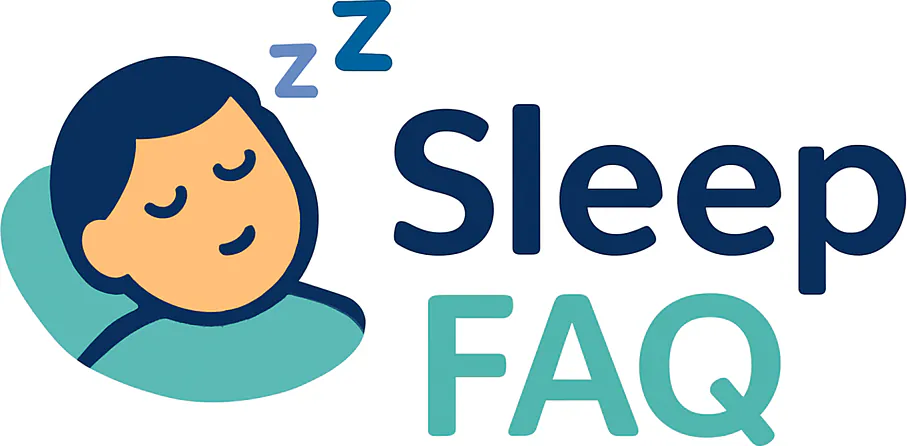How can I make more time for sleep with a busy schedule?
Sleep is often the first thing we give up when life becomes busy, yet it is essential for both our health and productivity.
This article explores the profound importance of sleep in time management, examining how a hectic schedule can interfere with our sleep quality and overall productivity.
Practical strategies for making time for sleep through effective time management, creating a sleep-friendly environment, and establishing a calming bedtime routine incorporating relaxation techniques will be shared.
By prioritizing sleep and focusing on sleep quality improvement, we can gain its many benefits, enhancing our overall well-being and daily performance while maintaining a healthy work-life balance.
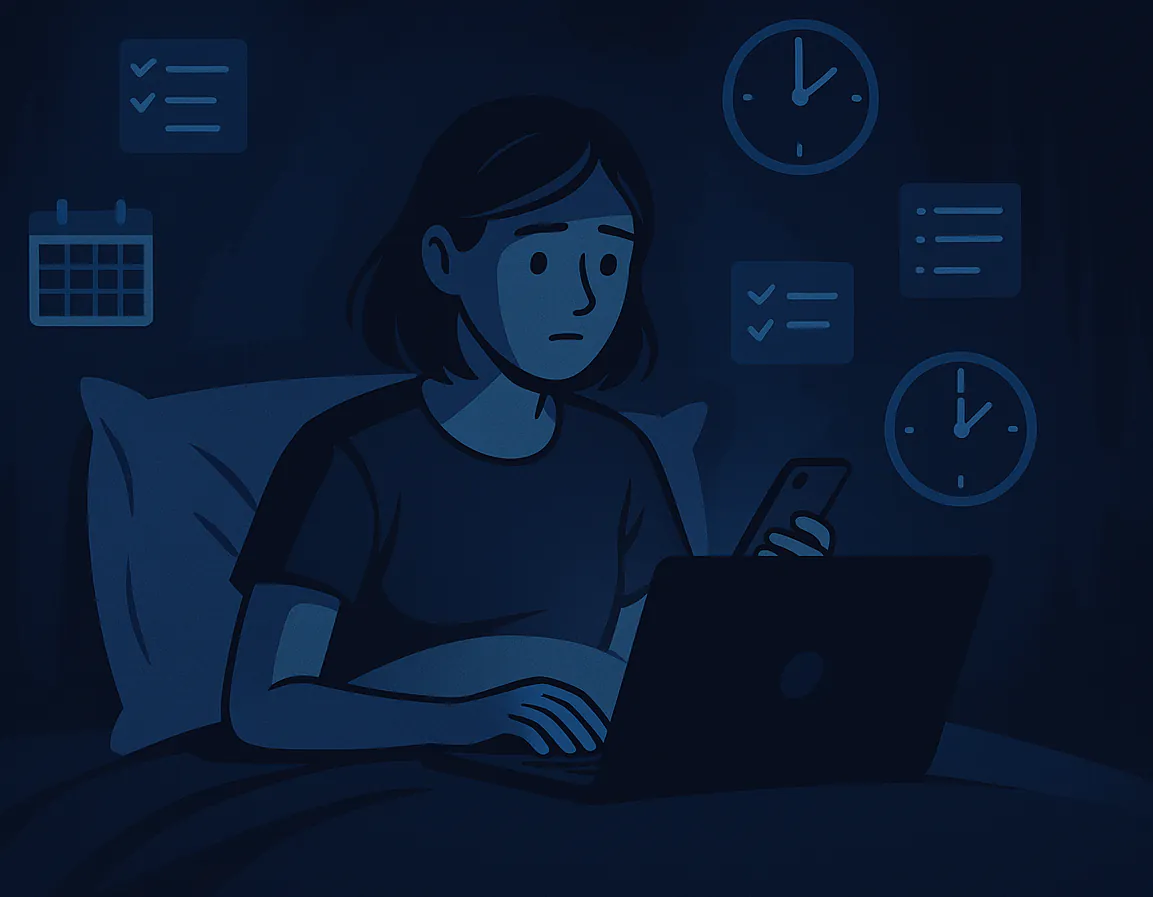
The Importance of Sleep
Sleep is important for staying healthy and being productive. It significantly affects our overall well-being.
Getting enough sleep helps us regain energy and think more clearly, which is important for handling our hectic routines effectively. It also supports better time management and stress management, essential for maintaining productivity. Restful sleep improves both physical health and emotional and mental well-being.
Knowing why sleep is important can help you manage your time better, support a balanced life, and improve your overall well-being.
Why Getting Enough Sleep is Essential for Health and Productivity
Getting enough sleep is important for staying healthy and doing well; not sleeping enough can greatly reduce our ability to work, think, and have energy, which are key for completing tasks. When we neglect our sleep needs, we might experience fatigue, decreased focus, and a higher susceptibility to stress, all of which undermine our ability to manage daily tasks effectively.
The consequences of inadequate sleep extend beyond just feeling tired; diminished mental clarity can lead to poor decision-making, increased errors, and even affect interpersonal relationships due to irritability.
This can create a vicious cycle where lack of sleep negatively impacts both personal and professional life, ultimately stifling growth.
To combat these negative effects, individuals should consider implementing effective sleep strategies and sleep hygiene practices such as:
- Establishing a consistent sleep schedule
- Creating a relaxing bedtime routine that includes relaxation techniques
- Improving their sleeping space and cutting back on using devices before bed
Getting good sleep improves your thinking skills and makes you feel better overall, which helps you live a more effective and satisfying life.
The Effects of a Busy Schedule on Sleep
A busy schedule can impose significant challenges on our ability to get quality sleep, often leading to sleep deprivation and its associated consequences.
With overwhelming commitments like work demands, family obligations, and social life, many individuals struggle to achieve a healthy work-life balance, resulting in poor time management and compromised sleep patterns that can affect overall health, productivity, and mental health.
How a Busy Schedule Can Negatively Impact Sleep Quality
How a busy schedule can negatively affect sleep quality is evident in the increased fatigue and stress levels experienced by many individuals. When our time allocation and planning prioritize work over rest, we often neglect essential evening habits that contribute to a restful night's sleep, ultimately disrupting our circadian rhythm and evening routine.
For instance, late-night work sessions may push individuals to sacrifice their wind-down routines, leading to increased reliance on screens before bed. The blue light emitted from devices can interfere with the production of melatonin, making it even more challenging to fall asleep.
To address these issues, it's important to set limits on work hours by allocating specific times for relaxation, self-care, and nurturing healthy habits, which are key to effective stress relief. Incorporating calming activities such as reading, meditation, or light stretching into the evening can promote better sleep hygiene.
By consciously prioritizing these healthy practices and fostering relaxation, individuals can create a more balanced environment that facilitates restorative sleep, ultimately enhancing their overall well-being and productivity.
Strategies for Making Time for Sleep
Implementing effective strategies for making time for sleep, such as efficient scheduling and time-saving strategies, is essential for improving both health and productivity.
By consciously prioritizing sleep, employing efficient time management techniques, and utilizing sleep aids or sleep apps, individuals can create a sleep schedule that accommodates their busy lives while ensuring restorative sleep remains a daily priority.
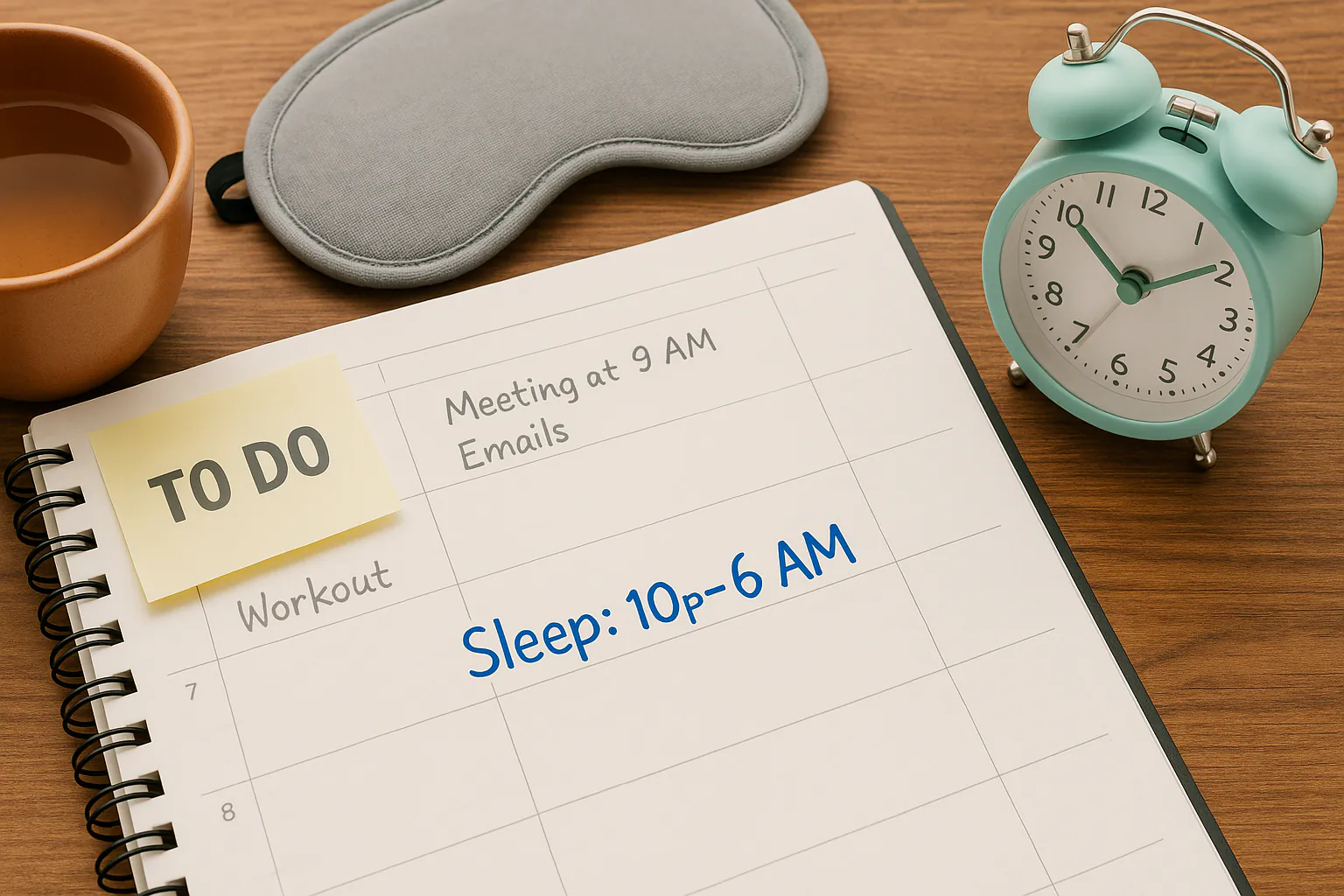
Tips for Prioritizing Sleep and Creating a Better Sleep Schedule
To make sleep a priority and improve your sleep schedule, it's important to set up a regular bedtime routine. Using relaxation techniques in your evening routine can significantly improve your sleep habits and help you sleep more consistently and restfully, contributing to healthy sleep patterns and stress management.
One practical tip for this is to do calming activities like reading a book, practicing deep breathing exercises or meditation, or enjoying a warm bath before going to bed. These can help you relax and improve your sleep.
These activities can signal to the mind and body that it's time to unwind, making it easier to fall asleep. Limiting screen time and reducing exposure to blue light in the hours leading up to sleep can further support a healthy sleep cycle, circadian rhythm, and improve mental health.
By creating a calm environment and adding these habits, people will start to connect their bedtime with peace, which will help them sleep better.
Creating a Sleep-Friendly Environment
Creating a sleep-friendly environment is essential for enhancing sleep quality and establishing healthy sleep patterns. By reducing technology use before bedtime and making the bedroom more relaxing, individuals can greatly improve their chances of getting restful sleep each night.
How to Set Up Your Bedroom for Optimal Sleep
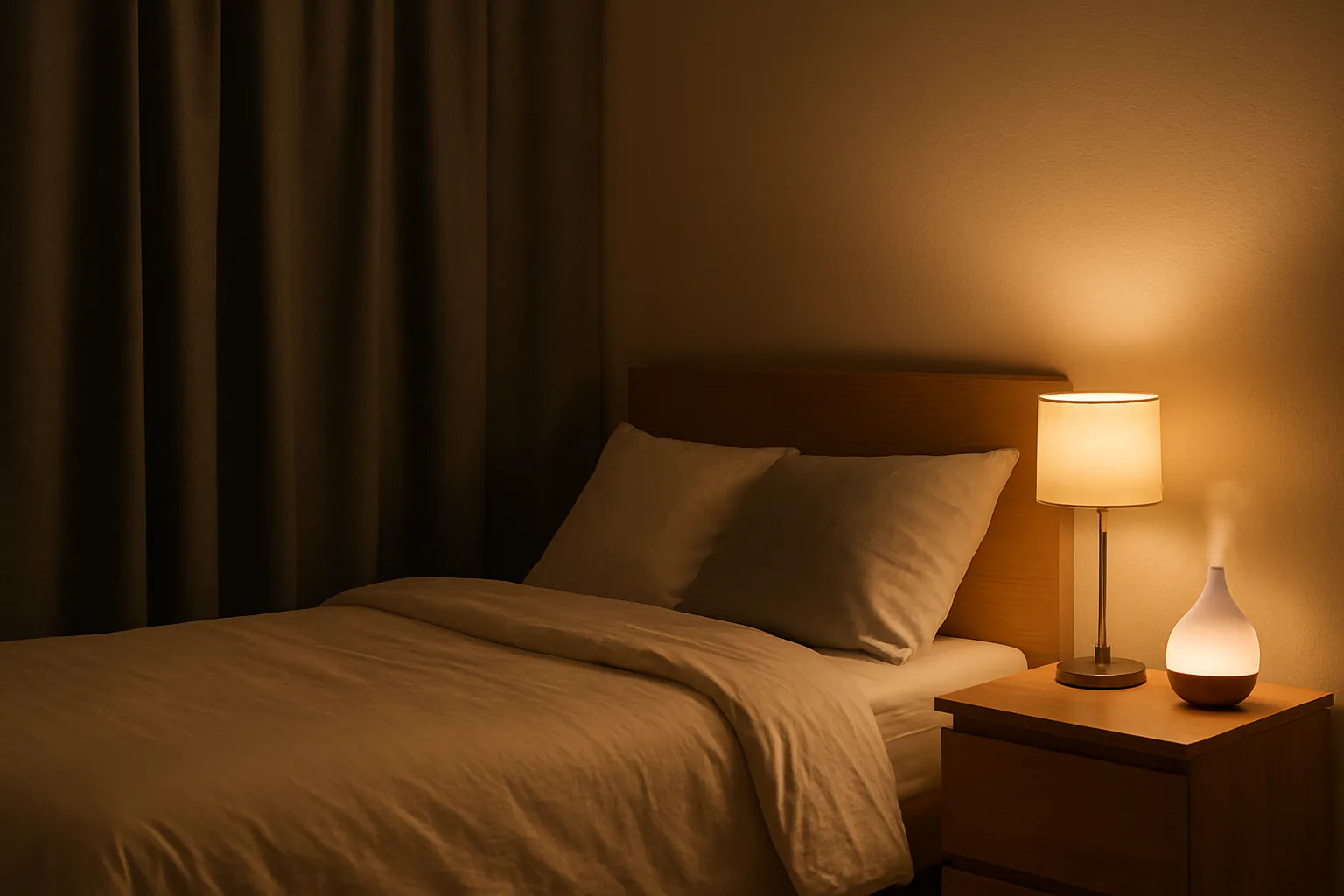
To set up your bedroom for optimal sleep, focus on creating a calming and comfortable environment that promotes relaxation. Use sleep methods like blackout curtains, keeping the room cool, and doing relaxation exercises to help your mind and body get ready for restful sleep.
Additional elements also play a significant role in establishing an ideal sleep sanctuary. Buying good bedding, like soft sheets and firm pillows, can make sleeping more comfortable and decrease moving around at night.
Consider using calming scents like lavender with essential oils or scented candles, as these smells can greatly help with relaxation and create a peaceful feeling.
Minimizing noise disruption is equally important; utilizing white noise machines or earplugs can effectively mask disruptive sounds from outside, thereby creating a peaceful atmosphere conducive to deep rest.
Together, these adjustments contribute to a sleep environment that significantly enhances overall sleep quality.
Establishing a Relaxing Bedtime Routine
Establishing a relaxing bedtime routine is important for telling your body it's time to relax and get ready for sleep while incorporating mindfulness and relaxation techniques.
By adding mindfulness exercises and relaxation methods to your evening routine, you can develop good sleep habits that lead to better sleep, increased productivity, and improved overall health.
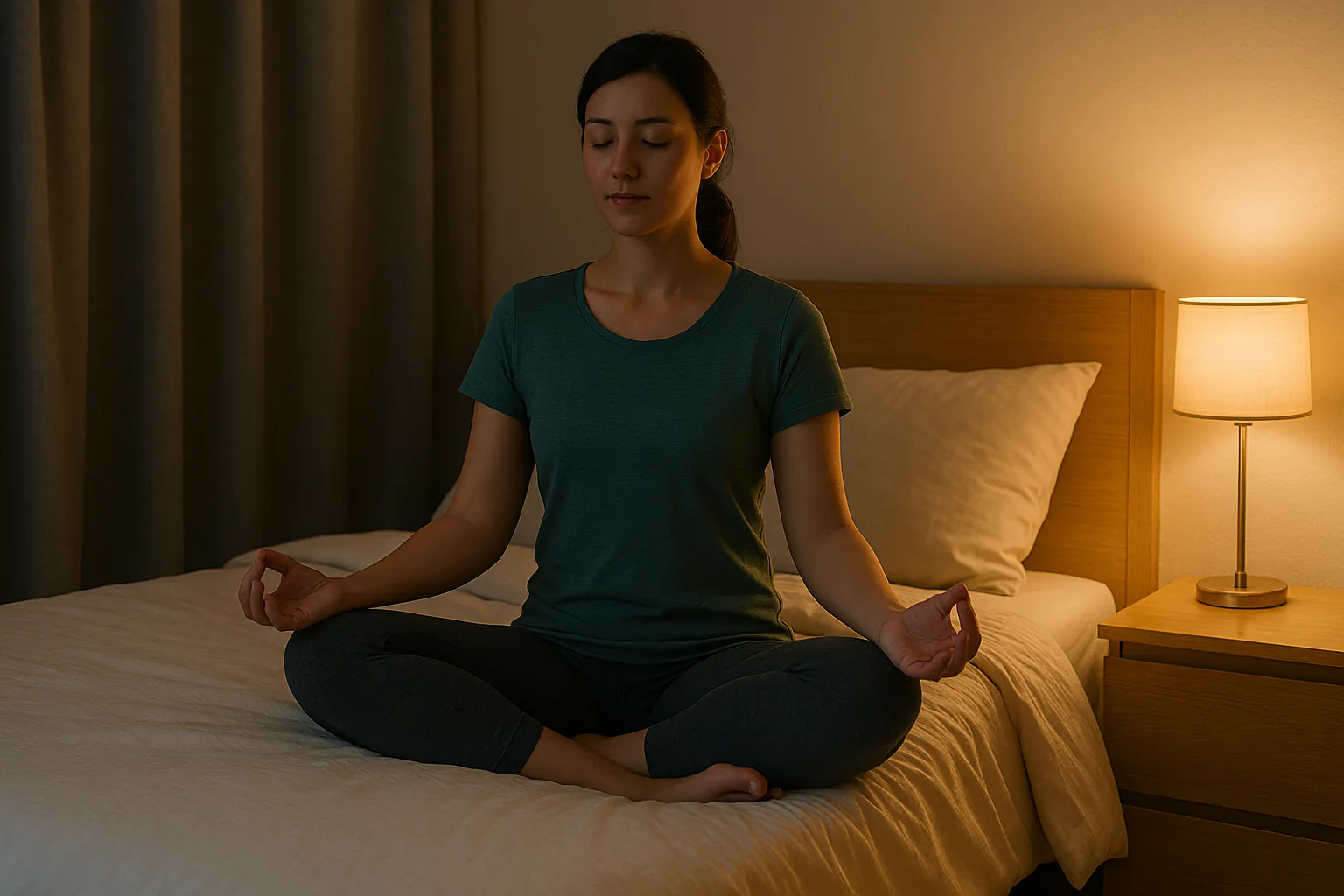
Ways to Wind Down and Prepare for a Good Night's Sleep
Winding down properly in the evening is essential for preparing for a good night's sleep, as it helps transition the body into a restful state. Using sleep methods like relaxation exercises and encouraging a positive attitude about sleep can lower stress and improve sleep quality.
Establishing a regular and relaxing evening routine is important; it tells the body it's time to relax, promotes mindfulness, and fosters a positive attitude toward sleep. Start by dimming the lights to promote a tranquil atmosphere, followed by engaging in soothing activities such as reading, gentle stretching, or listening to calming music, which all aid in stress management and relaxation.
Disconnecting from screens at least an hour before bed can be beneficial, as the blue light emitted by devices can interfere with natural sleep patterns, sleep quality, and circadian rhythm. Using mindful breathing, meditation methods, or sleep therapy before bed can help reduce stress, making it easier to fall asleep and improve sleep quality.
The Benefits of Adequate Sleep
Getting enough sleep leads to many advantages, including enhancing health, boosting efficiency, reducing fatigue, and improving energy levels.
Improved sleep quality contributes to better mental clarity, emotional well-being, and a more effective ability to manage daily challenges. It also supports stress management and personal productivity, ultimately enriching the quality of life.
How Getting Enough Sleep Can Improve Overall Health and Well-Being
Getting enough sleep is fundamental for improving overall health and well-being, as it directly influences various bodily functions, including cognitive function and emotional resilience. Sticking to a consistent sleep routine and focusing on sleep goals can reduce fatigue, aid in your body's recovery, and benefit your physical health, resulting in improved health overall.
Good sleep is important for managing hormones that affect hunger and stress, which can help with weight control and improve your mood.
Getting enough rest and managing energy well can improve immunity, helping the body fight illnesses and stay healthy.
When an individual prioritizes sleep, they often experience heightened focus and creativity during waking hours, fostering personal and professional growth, goal setting, and lifestyle changes.
In addition, strong sleep habits support emotional stability by providing a buffer against anxiety and depression, leading to healthier relationships and a more fulfilling life, emphasizing the health benefits of adequate sleep.
Frequently Asked Questions
How can I make more time for sleep with a busy schedule?
Making more time for sleep with a busy schedule can be challenging, but it is possible. Here are some tips to help you relax, get your work done faster, and sleep soundly:
What are the benefits of getting enough sleep?
Getting enough sleep is essential for our physical and mental health. It helps improve our memory, concentration, and productivity, and also reduces the risk of chronic diseases.
Can I catch up on sleep over the weekend?
While it may seem tempting to catch up on sleep over the weekend, this can lead to sleep deprivation. Our bodies need consistent sleep patterns and effective stress management, so prioritize sleep as part of your busy schedule and healthy habits every night.
How can I create a sleep-friendly environment and improve sleep quality?
Creating a calm and comfortable sleep environment can help improve sleep quality. This means making sure the room is dark, cool, and quiet, staying away from electronics before bed, and thinking about using sleep aids or apps to monitor and improve your sleep pattern.
What are some relaxation techniques and sleep hygiene practices I can try before bed to promote wellness?
Incorporating relaxation techniques such as deep breathing, meditation, or stretching before bedtime can help you fall asleep faster, fostering relaxation, and improving the quality of your sleep. Following a regular sleep schedule and practicing mindfulness can improve personal productivity and mental health.
Is it okay to nap during the day to make up for lack of sleep and manage fatigue?
Taking naps during the day can mess up your sleep routine and body clock, making it harder to sleep at night. Instead of taking naps, use practical scheduling and time management to get enough sleep at night. This helps you stay alert and energetic.
